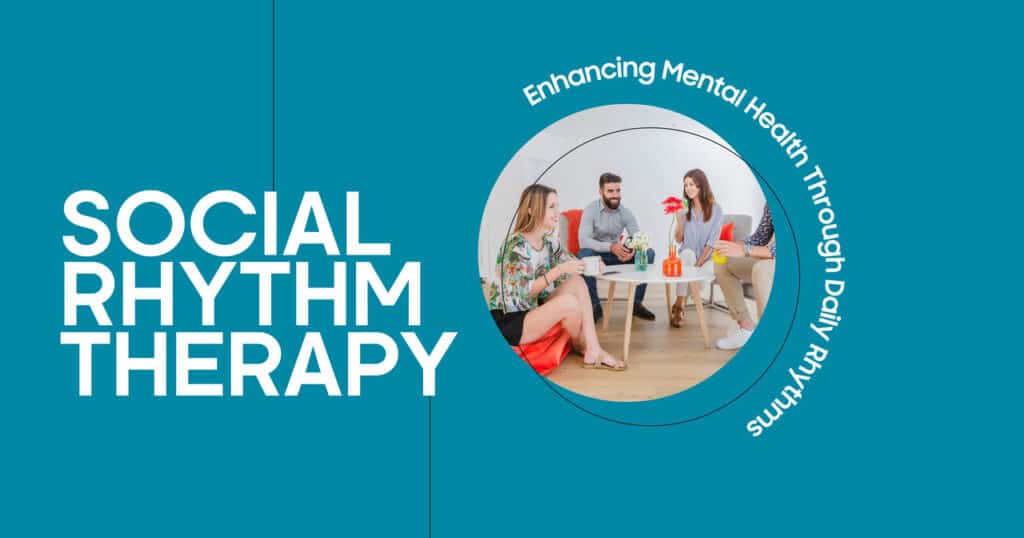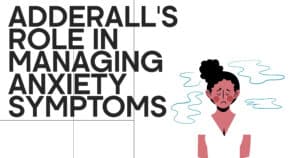Interpersonal social rhythm therapy was created to help people build a routine they can follow to improve their mood, restore relationships with people they may have lost due to their mood fluctuations, and prevent these individuals from lashing out at others due to their internal turmoil. Whether you are going through a major life transition, trying to reconcile with people you have hurt in the past, or coping with the symptoms of a developing mental health disorder, social rhythm therapy can be the right tool to guide you.
In this article we will focus on understanding social rhythm therapy principles, explaining who can take advantage of this therapeutic approach, and introducing certain techniques to give you a general idea about this form of treatment.
What Is Social Rhythm Therapy?
Social rhythm therapy is a talking therapy whose mission is to explore the factors that do not let the person lead a fulfilling life and figure out how they can enhance the internal and social aspects of their existence. While this form of treatment is most often used for people with a Bipolar Disorder diagnosis, it does not mean other individuals cannot benefit from it – whatever mood disorder you have or suspect you have, developing a routine with your therapist will enhance the quality of your life.
While only a qualified therapist can tell you the duration of social rhythm therapy in your particular case, usually this treatment lasts for four or five months and includes the evaluation phase, the analysis of interpersonal problems the patient is struggling with, the establishment of a routine the individual in question is going to follow, the development of coping mechanisms and skills to handle any mental health-related challenge, and the feedback of a counselor regarding the patient’s progress.
Remember that your treatment does not end when the sessions are over – aftercare therapy means you have learned your lesson and can avoid triggers and adhere to the required routine without constant professional supervision.
Why Would Someone Need Social Rhythm Therapy?
A balanced life is of paramount importance – if you thrive in one part of your life while completely neglecting another, it will backfire in the future even if now you do not feel the negative impact of your choices. Whether you failed to prioritize self-care, relationships with your inner circle, or professional opportunities, there is always a chance to get back on track, achieve a balance, and maintain it for years to come by implementing the guidelines of social rhythm therapy.
Evidence has shown that conflicts with other people or inability to stick to a healthy routine can become triggers of mood disorders and mental illnesses – for instance, an individual prone to depression may prevent depressive episodes from ever appearing if they get rid of bad habits and form strong bonds with other people.
Alternatively, embracing this type of therapy can help you lessen the symptoms of an existing mental condition – social rhythm therapy for Bipolar Disorder is supposed to encourage a person to take their medications and avoid mood swings that previously threatened their personal and professional relationships.
The 4 Key Principles of Social Rhythm Therapy
Interpersonal social rhythm therapy is based on four core concepts and values a patient is introduced to during counseling sessions:
| Principle | Description |
Bring Stability to Your Daily Life | When you are secure about your personal and professional life, there are no disruptions in your sleep, you are able to concentrate on your work and studies, and you feel there is a genuine balance between all the parts of your life that matter to you, you are a healthier and stronger person both inside and outside |
Improve Relationships With Others | A person with mood shifts or someone who is easily irritated for no apparent reason is risking losing connection with their loved ones – people’s patience cannot last forever. This therapy will examine the causes of your behavior and teach you how to be a more caring and calm individual – additionally, a therapist will ask you to journal your interactions with others in order to analyze them together and see where you succeeded or made a mistake |
Learn How to Deal With Stress | Whether your life brings you new stressful challenges every day or you recently went through a traumatic event that harmed you physically or mentally, it may be necessary to address your concerns by getting professional help in the form of social rhythm therapy |
Maintain a Strict Medication Schedule | Most specialists will tell you that the best way to handle a lasting mental health disorder is to combine talking therapy and take medication prescribed by a qualified therapist. Make sure you never skip your medication and do not attempt to stop taking it without consulting with a doctor first |
Who Could Benefit From Social Rhythm Therapy?
Not just people with confirmed mental health diagnoses can see how social rhythm therapy improves their lives – below you can read more about the patients who can get better with this therapeutic approach:
| Patients | Description |
People With Bipolar Disorder | Social rhythm therapy for Bipolar Disorder is a great solution for those who cannot manage their symptoms on their own. Mood swings disrupt a person’s life severely, which is why it is important to acknowledge what behavioral patterns lead to them and how to handle your emotions better for your own sake and for the sake of people around you |
Individuals With Sleep Problems | Sleep disturbances will undermine both the physical and mental health of the individual – if you are not getting enough sleep or falling asleep later than you would like to, it will increase your stress, put you at risk of heart disease and stroke, and lead to cognitive impairment. This is why a therapist will put emphasis on fixing your sleep routine as one of the main goals of treatment |
Teenagers | It is not a secret that adolescents have to navigate lives full of obstacles and challenges they often are not ready for. Their parents, peers, and teachers complain about their behavior, and frequently the teenage person simply cannot understand how to “grow up” without confrontations. Social rhythm therapy is going to prevent possible mood disorders as well as strengthen the bond between a teenager and their family helping them to move forward and leave tough times behind |
People Dealing With Stress | Whether stress is caused by personal struggles or work issues, constantly worrying about the present and future will lead to anxiety and depression. During a counseling session, you will be able to dive deep into the triggers of stress and learn how to cope with it with minimal negative consequences in the long run |
Social Rhythm Therapy | FAQs
- What mental health conditions does social rhythm therapy help treat?
Social rhythm therapy was initially invented to help people with Bipolar Disorder manage their mental well-being better. Nowadays, however, any individual with increased stress and anxiety can give a chance to this type of treatment since it is a common social rhythm therapy strategy to create and follow a routine that improves your life both short- and long-term.
- How do I know if I would benefit from social rhythm therapy?
If you are learning about various therapeutic approaches that can become a part of your treatment on your own, you should remember that the regular routine is the foundation of a healthy body and mind. Bring up this treatment in a conversation with your therapist and listen to their advice – it is likely they will be open to trying this approach during upcoming counseling sessions.
- How long has social rhythm therapy been around?
Therapists have noted the positive impact of social rhythm therapy for more than thirty years now – since 1990, mental health professionals have been aware of this approach and implemented it when treating patients. This is not a brand new technique that has not been tested on individuals with mood disorders – on the contrary, thousands of people have undergone social rhythm therapy and felt its influence on their lives.
- What technique is used in interpersonal therapy to heal anxiety?
There are several treatment options when it comes to the utilization of social rhythm therapy for anxiety – you and your therapist can roleplay practicing challenging conversations you may have to deal with later on while you are still in a safe space, dig deep into negative behavioral patterns that make you afraid and scared of a potential confrontation, and identify the causes of stress you can get rid of permanently.
- What does a therapist do during social rhythm therapy sessions?
Every mental health facility has its own therapy modalities to guide its clients; nevertheless, most therapists will offer you an evaluation to learn more about your medical history and current diagnosis (or lack thereof), examination of your symptoms, recognition of harmful thought patterns and behaviors that do not let you achieve personal or professional success, and implementation of skills that are meant to help you become a healthier individual such as constant self-reflection, mindfulness, and empathy.




